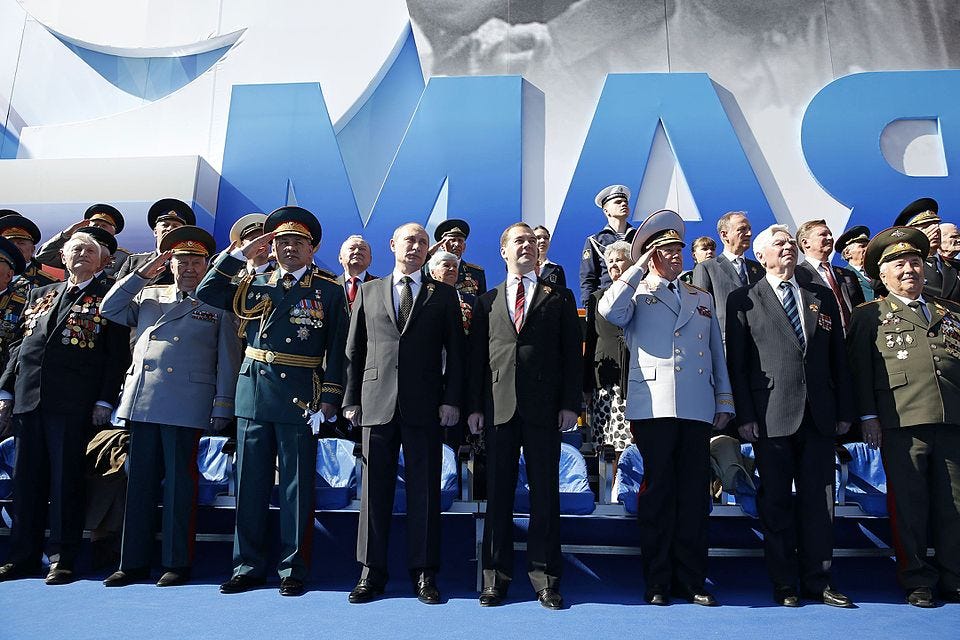Why Putin Makes the Soviet Victory in World War II About Himself
After 25 years in power, what does Russia's leader have to show for it?

When I was a student living in Moscow in 2007, I didn't think too much about May 9, when Russia cel…

When I was a student living in Moscow in 2007, I didn't think too much about May 9, when Russia cel…